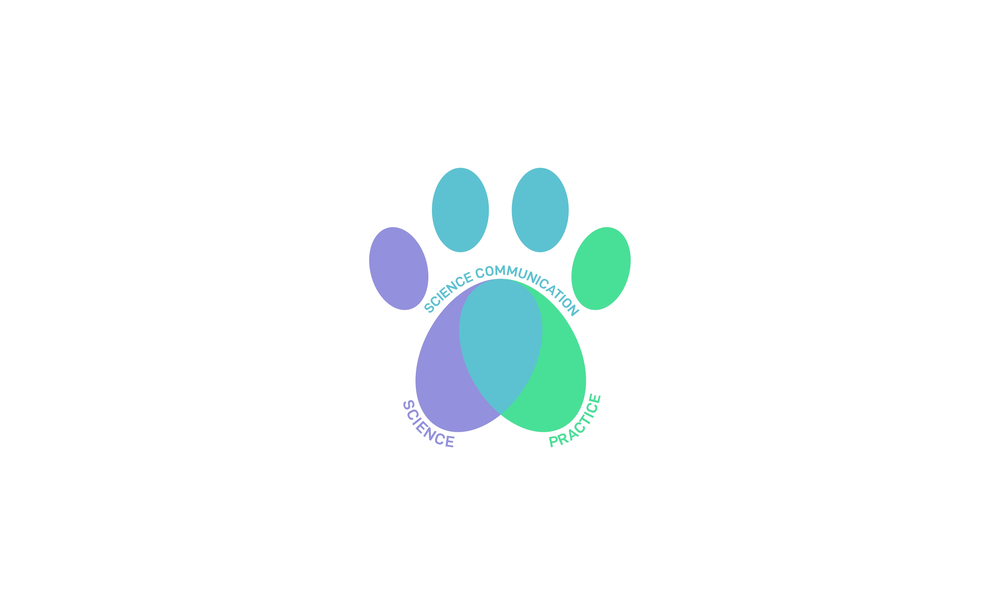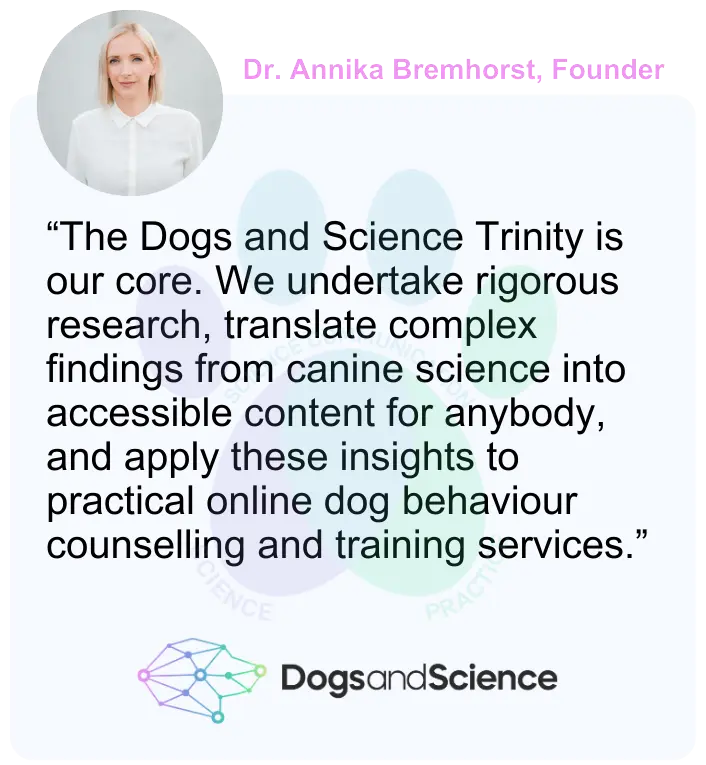Table of Contents:
Understanding the Role of Dogs as Emotional Catalysts
Dogs have long been considered more than just pets; they are often seen as family members and emotional catalysts. Their innate ability to detect human emotions allows them to play a crucial role in our mental and emotional well-being. Dogs are highly attuned to the moods and emotional states of their human companions, which makes them excellent supporters during times of stress, depression, or anxiety.
This emotional connection is largely due to the oxytocin exchange, also known as the 'love or bonding hormone,' which is released in both humans and dogs during interactions such as petting or playing. The release of oxytocin creates a bond akin to that between a parent and child, fostering a deep sense of connection and well-being. This bond can significantly reduce feelings of loneliness and boost overall mental health.
As emotional catalysts, dogs do more than just offer companionship; they can help us navigate our own emotional landscapes. By observing a dog's responses to various situations, individuals can learn more about their emotional reactions and improve their ability to regulate them. Thus, dogs help us not only connect with others but also with our inner selves, enhancing self-awareness and emotional resilience.
Exploring the Psychological Benefits of Dog Parentship
Sharing your life with a dog offers a multitude of psychological benefits that contribute to a pet parent's mental health. Engaging in regular walks and playful interactions with dogs can lead to significant improvements in physical health, which are closely linked to psychological well-being. These activities help reduce levels of stress, anxiety, and depression among dog parents.
Moreover, dog parents often experience increased levels of serotonin and dopamine—neurotransmitters associated with feelings of happiness and tranquility. The simple act of caring for a pet encourages humans to engage in daily routines and stabilises their daily activities, which is especially beneficial for individuals experiencing instability in their personal lives.
Dog parentship also provides valuable lessons in responsibility and nurturing, which are essential for personal growth and self-esteem. Caring for a dog requires consistency, patience, and commitment, which can lead to improved self-confidence as pet parents successfully meet the demands of their role. Additionally, dogs offer unconditional support and acceptance, helping people build a stronger sense of self-worth and belonging.
Fostering a dog can also expand social networks by connecting people with other dog lovers, which enhances sociability and reduces feelings of isolation. The shared experience of dog ownership often leads to new friendships and community connections that might not have been formed otherwise.
The Impact of Dog Companionship on Personal and Social Connectivity
| Pros | Considerations |
|---|---|
| Enhances emotional wellbeing | Requires time and commitment |
| Increases opportunities for social interaction | Potential costs for care and daily life |
| Can reduce feelings of loneliness | Some people may have allergies to dogs |
| Provides a sense of purpose and responsibility | Travel and housing restrictions can be a challenge |
How Dogs Enhance Social Interactions and Relationships
Dogs act as remarkable facilitators in enhancing social interactions and building relationships. They often serve as icebreakers in social settings, giving people a common interest and an easy topic of conversation. This effect is particularly useful in environments where individuals may otherwise find it difficult to initiate conversations.
Additionally, dogs help their pet parents develop stronger empathetic skills. By caring for a dog, individuals learn the importance of non-verbal communication and become more attuned to the emotional states of those around them. This empathy is easily transferred into human relationships, improving the way people connect and interact with each other.
Participating in community activities like dog walking groups or pet-related events also promotes deeper connections. These activities allow dog owners to meet others with similar interests, fostering a sense of community and belonging. Through such interactions, lasting relationships are often formed, enriching the social lives of dog owners.
Furthermore, dogs can help bridge gaps in relationships that might exist due to age, cultural differences, or other barriers. Their universal appeal and the simplicity of interacting with them allow people from different backgrounds to find common ground in a shared love for dogs. This bonding over a mutual interest can lead to more meaningful and cohesive social networks.
The Theory Behind Canine Influence on Human Behaviour
The interaction between humans and dogs is deeply rooted in our history, which helps to explain why dogs have such a profound influence on human behaviour. At the core of this interaction is the concept of biophilia, which suggests that humans have an innate tendency to seek connections with nature and other living beings.
Interactions with dogs can activate the ventral striatum, an area of the brain associated with rewards and positive emotions. When humans pet and engage with dogs, the brain releases endorphins, chemicals known for their role in elevating mood and reducing stress levels—thus explaining the immediate sense of happiness many experience around dogs.
Interacting with dogs can also modulate social hormones like oxytocin, which facilitates bonding and trust. This hormonal response not only strengthens the bond between dogs and their owners but also enhances their owners' interactions with other humans. For example, dog parents often exhibit lower levels of cortisol, the stress hormone, leading to a calmer and more approachable demeaneor.
Moreover, dogs' ability to understand human gestures and expressions better than any other species has led to the development of unique communicative dynamics. Dogs' capacities to interpret our intentions and emotions can guide human behaviour in more cooperative and socially engaging directions. This evolutionary trait enables dogs to act as social catalysts, subtly encouraging us to mirror their social openness and enthusiasm.
Collectively, these biological and psychological effects provide a basis for the deep-seated bond between humans and dogs, elucidating how these animals profoundly influence human behaviour and social dynamics.
Practical Ways Dogs Help Us Connect with Our Inner Selves
Dogs provide a unique avenue for individuals to connect with their inner selves through a variety of practical ways. Their presence can act as a mirror, reflecting our own emotions and behaviours back at us, which leads to greater self-awareness.
One practical method is through mindfulness exercises involving our canine companions. By focusing on the present moment and observing our dogs' behaviour—whether playing, eating, or simply resting—we can learn the art of presence. This helps reduce overthinking and anxiety, anchoring us in the now.
Engaging in routine care activities for our dogs such as feeding, grooming, and walking, also provides us with structured time to reflect and meditate. These activities can be therapeutic, fostering a sense of responsibility and routine that benefits our mental health. When conducted mindfully, they become moments of connection with our deeper self.
Moreover, taking care of a dog demands emotional regulation. It teaches us patience, compassion, and resilience. Over time, these interactions help cultivate these qualities within ourselves, improving our interactions with others and the way we handle life's challenges.
Fostering or adopting a dog can also lead to an exploration of our nurturing abilities. This experience often prompts introspection about our capacity for care and emotional expression, revealing aspects of our personality that may not be engaged in other areas of life.
Lastly, dogs often lead us to nature, encouraging outdoor activities. This connection with nature can be deeply healing, offering us a chance to reflect, rejuvenate, and reconnect with our inner selves amid the tranquility of the natural world.
Conclusion: Embracing the Power of Dogs in Enhancing Human Connections
In conclusion, the influence of dogs on human connections is both profound and multifaceted. By embracing the unique bond we share with dogs, we unlock a series of benefits that reverberate through all aspects of our lives. These faithful companions stretch far beyond the roles of pets, emerging as pivotal figures in enhancing personal well-being, social integration, and overall life satisfaction.
Dogs significantly enhance our capacity for empathy, facilitate social interactions, and serve as catalysts for emotional and psychological growth. Their ability to act as a bridge between individuals underscores their importance not just in personal circles but also within wider community networks.
Whether it is through the simple act of going for a walk or providing comfort during times of distress, dogs help us navigate the complexities of human emotions and relationships. They teach us about resilience, joy, and the unspoken depths of companionship. Consequently, integrating a dog into one's life can be seen as not merely a source of joy, but an instrumental part of leading a fulfilled and connected life.
As we move forward, let us continue to explore and appreciate the remarkable ways in which these animals enhance our lives. By doing so, we not only enrich our own experiences but also contribute to a more compassionate and connected world.
FAQ on The Impact of Dogs on Human Relationships and Self-awareness
How do dogs enhance our social interactions?
Dogs act as social facilitators, often breaking the ice in social settings and providing a mutual topic of interest that aids in conversation and relationship building. Their presence aids in reducing social anxieties, making interactions more comfortable and genuine.
What role do dogs play in improving mental health?
Dogs help in lowering stress, anxiety, and depression levels through companionship and the provision of unconditional love. The act of caring for a dog also establishes routines that help provide stability and emotional fulfillment.
Can dogs help in personal development?
Yes, dogs require a level of responsibility and commitment that can contribute greatly to personal growth. Taking care of a dog enhances traits like patience, empathy, and resilience, which are vital in personal and professional relationships.
How do dogs assist in building community connections?
By participating in dog-related activities like walks or events, dog owners meet other like-minded individuals, which can foster friendships and strengthen community bonds. Dogs naturally bring people together, facilitating stronger neighborhood ties.
In what ways do dogs help us understand our own emotions better?
Dogs often mirror the emotional states of their pet parents, providing insights into one’s own feelings and reactions. This reflection helps individuals become more self-aware and can significantly improve emotional regulation and personal interactions.








